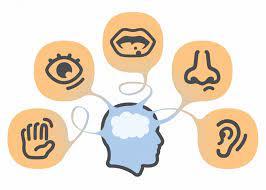Rumination disorder is a relatively unknown mental health condition that can be very debilitating for those who suffer from it. People with rumination disorder constantly think about and review past events, often to the point where it interferes with their daily life. This comprehensive guide will provide you with all the information you need to know about rumination disorder, including its causes, symptoms, and treatment options.
Contents
What Is Rumination Disorder?
 Rumination disorder is a condition in which a person repetitively and excessively focuses on thoughts, feelings, or emotions. This can lead to significant distress and interfere with daily functioning. It is most common in adolescence and young adulthood, but it can occur at any age.
Rumination disorder is a condition in which a person repetitively and excessively focuses on thoughts, feelings, or emotions. This can lead to significant distress and interfere with daily functioning. It is most common in adolescence and young adulthood, but it can occur at any age.
There are two types of rumination disorder: primary and secondary. Primary rumination disorder is when a person has been excessively ruminating for at least six months without any identifiable trigger. Secondary rumination disorder is when a person begins excessively ruminating in response to a stressful life event, such as the death of a loved one or the loss of a job.
It is also known as recurrent rumination syndrome, compulsive rumination, and intrusive rumination. Many people believe that it is a form of OCD, but it is now considered a separate condition. As this is a relatively new diagnosis, there is still a lot of research needed to understand all aspects of the disorder.
But whatever the cause, rumination disorder can be a very debilitating condition. It can impact every area of a person’s life, from their relationships to their work or school performance. If you think you may have a rumination disorder, it is important to seek professional help.
Rumination Disorder Symptoms
It is important to note that not all people who ruminate will have a diagnosable disorder. Some people may do it occasionally, and while it can be a nuisance, it does not typically interfere with their daily lives. For people with rumination disorder, however, the act of ruminating is much more than just an occasional thought.
It is all-consuming and can have a major impact on their ability to function in day-to-day life. Symptoms of rumination disorder include:
- An inability to stop thinking about a particular topic or problem
- Spending more than an hour each day engaged in ruminative thoughts
- These thoughts are typically negative and focus on themes of worry, stress, or self-criticism
- Difficulty concentrating or focusing on other tasks
- Poor sleeping habits
- Irritability or moodiness
- Loss of appetite or overeating
- Physical symptoms such as stomach pain or headaches
If you are experiencing any of these symptoms, it is important to reach out to a mental health professional for help. Rumination disorder can be a very difficult condition to live with, but with treatment, it is possible to find relief. If you think you may be suffering from rumination disorder, the first step is to schedule an appointment with your doctor. They will likely refer you to a mental health professional for an evaluation.
Is Rumination Disorder A Mental Illness?
 This is a difficult question to answer. While there is not currently a formal diagnosis for rumination disorder, it is generally considered to be a form of anxiety or depression. However, rumination disorder may someday be recognized as a distinct mental illness.
This is a difficult question to answer. While there is not currently a formal diagnosis for rumination disorder, it is generally considered to be a form of anxiety or depression. However, rumination disorder may someday be recognized as a distinct mental illness.
Many different theories suggest rumination may be a mental illness. For example, some believe that rumination disorder is a form of OCD (Obsessive Compulsive Disorder). Because people who ruminate often feel the need to perform certain behaviors or think certain thoughts to relieve their anxiety, some experts believe that rumination may be classified as a type of OCD.
Other theories suggest that this condition is a form of depression. This is because people who ruminate often have negative thoughts about themselves and their lives. Additionally, people who ruminate often have difficulty enjoying activities that they once enjoyed.
There is also some evidence to suggest that rumination may be a form of post-traumatic stress disorder (PTSD). This is because people who ruminate often have intrusive thoughts about a traumatic event. Additionally, people who ruminate often avoid certain activities or places that remind them of the traumatic event.
At this time, there is not enough evidence to say definitively whether rumination is a mental illness. However, the theories listed above suggest that it may be classified as a mental illness in the future. If you are struggling with rumination, it is important to seek professional help. They can help you with an accurate diagnosis.
Causes And Triggers
Many different things can cause or trigger someone to start ruminating. Let’s discuss some of the most common causes and triggers.
Stress
One common cause of rumination is stress. Stressful life events, such as the death of a loved one or losing a job, can trigger rumination. Other stressful situations, such as being bullied or going through a divorce, can also cause someone to start ruminating. It is important to note that not all stress is bad. Some amount of stress is necessary for us to function properly. It is only when the stress becomes too much to handle that it can lead to rumination.
Anxiety
Another common cause of rumination is anxiety. People who suffer from anxiety disorders, such as social anxiety disorder or generalized anxiety disorder, are more likely to ruminate than those who do not suffer from anxiety disorders. This is because anxiety can cause a person to focus on their negative thoughts and worry about the future.
Perfectionism
People who are perfectionists often ruminate about their mistakes and the things they could have done better. This is because they are constantly trying to improve themselves and meet their high standards. And eventually, they will find themselves in a never-ending cycle of self-criticism. This can be extremely detrimental to one’s mental health.
Bereavement
This cause is characterized by the death of a close friend or family member. The death may be sudden, such as from an accident, or expected, like from a terminal illness. People who lose someone close to them often go through a period of intense grief and mourning. For some people, this grieving process is more complicated and long-lasting.
Triggers
 There are a variety of things that can trigger rumination. For some people, it may be a certain type of food or drink, while for others it may be a particular smell or sound. It is important to identify your triggers so that you can avoid them as much as possible. Common triggers include:
There are a variety of things that can trigger rumination. For some people, it may be a certain type of food or drink, while for others it may be a particular smell or sound. It is important to identify your triggers so that you can avoid them as much as possible. Common triggers include:
- Certain types of food or drink
- Particular smells or sounds
- Stressful situations
- Fatigue
- Boredom
- Loneliness
- Low self-esteem
If you find yourself constantly dwelling on your mistakes or the things you could have done better, it might be time to seek help. You should not have to go through this alone. There are many resources available to help you deal with rumination disorder.
Rumination Disorder Diagnosis Criteria
This is a comprehensive guide on the diagnosis criteria for rumination disorder. To be diagnosed with rumination disorder, an individual must:
- Recurrently and persistently regurgitate food for at least one month (not associated with any other medical condition).
- Repeated regurgitation is not caused by an underlying physical condition (e.g., gastroesophageal reflux disease).
- The individual is aware of the regurgitation and it causes them distress.
- The regurgitation is not part of a normal developmental process (e.g., in infants).
If an individual meets these criteria, they will be diagnosed with rumination disorder. Some methods are used to diagnose rumination disorder, which include:
- Medical history: A medical professional will take a detailed medical history to rule out any other potential causes of the regurgitation (e.g., GERD).
- Physical examination: A physical examination will be conducted to check for any potential physical causes of the regurgitation.
- Psychological assessment: A psychological assessment may be conducted to check for any underlying psychological causes of the regurgitation (e.g., anxiety).
- Imaging: Imaging tests (e.g., X-ray, endoscopy) may be conducted to rule out any other potential causes of the regurgitation.
An accurate diagnosis is important to developing an effective treatment plan. If you are experiencing any of the above symptoms, it is important to speak to a medical professional.
How To Manage It?
If you are diagnosed with rumination disorder, your doctor will likely recommend a treatment plan as per your case. Some people may require medication to help with the symptoms, while others may only need therapy.
In any case, working with a professional is key to managing the disorder and improving your quality of life. Let’s discuss some common options that you can choose to incorporate into your treatment plan.
Psychotherapy
 It is common for people with rumination disorder to also deal with anxiety or depression. As a result, psychotherapy is often recommended as part of the treatment plan. It is also known as “talk therapy” and can help you understand your thoughts and emotions better.
It is common for people with rumination disorder to also deal with anxiety or depression. As a result, psychotherapy is often recommended as part of the treatment plan. It is also known as “talk therapy” and can help you understand your thoughts and emotions better.
Cognitive-behavioral therapy (CBT) is a type of psychotherapy that is particularly effective for treating anxiety and depression. CBT can help you learn how to change negative thinking patterns and behaviors. There are also other types of therapies that may be helpful, such as:
- Interpersonal therapy
- Family therapy
- Acceptance and commitment therapy (ACT)
Medication
In some cases, medication may be necessary to help manage the symptoms of rumination disorder. Antidepressants are commonly prescribed to help with the associated anxiety and depression. Your doctor may also prescribe medications to help with any gastrointestinal issues that you may be experiencing.
It is important to work with your doctor to find the right medication and dosage for you. Medication can be very helpful, but it is not a cure. You will likely still need to participate in other forms of treatment, such as therapy, even while taking medication.
Lifestyle Changes
There are also some lifestyle changes that you can make to help manage your rumination disorder.
- First, it is important to get regular exercise. Exercise can help to release endorphins and improve your mood.
- It can also be a good way to distract yourself from intrusive thoughts.
- In addition to exercise, it is also important to practice meditation and relaxation techniques.
- Both of these can help to calm your mind and body.
- Finally, it is also important to get enough sleep. Sleep can help to reduce stress and anxiety levels. If you are having trouble sleeping, talk to your doctor about possible solutions.
Dietary Changes
Diet plays a role in gut health, which may be a factor in rumination disorder. Some evidence suggests that diet may contribute to the development of gastrointestinal disorders, including rumination disorder. Probiotics, prebiotics, and fiber may help improve gut health and reduce symptoms of rumination disorder.
There are no specific dietary recommendations for treating or preventing rumination disorder. However, eating a well-balanced diet and avoiding trigger foods may help reduce symptoms.
Support groups
 Support groups are really helpful for rumination disorder. They provide a space for people to share their experiences and support each other. There are many online support groups that you can join. A group provides you with people to talk to who understand what you’re going through. It can be helpful to have a support system for people who get it.
Support groups are really helpful for rumination disorder. They provide a space for people to share their experiences and support each other. There are many online support groups that you can join. A group provides you with people to talk to who understand what you’re going through. It can be helpful to have a support system for people who get it.
If you don’t feel comfortable joining a group, that’s okay. You can also find support in other ways. Many online resources can be helpful. Reading articles or blogs about rumination disorder can help you feel less alone.
So there are numerous ways to seek help and overcome this condition. It’s important to find what works for you and stick with it. Change can be hard, but it’s worth it to live a happier life.
Conclusion
To conclude, rumination disorder is what people experience when they excessively think about something to the point where it causes them distress or interferes with their daily life. It is different from simply worrying or being anxious because the thoughts are usually repetitive and hard to control.
If you think you may have a rumination disorder, please reach out to a mental health professional for help. There is still much unknown about this disorder, but with treatment, you can learn to control your thoughts and improve your quality of life.
You can also contact Therapy Mantra for affordable online counseling services. We have a team of professional therapists who can provide you with the support and guidance you need to recover from this condition. Contact us today to learn more about our services. You can also book an online therapy session or download our free Android or iOS app.


